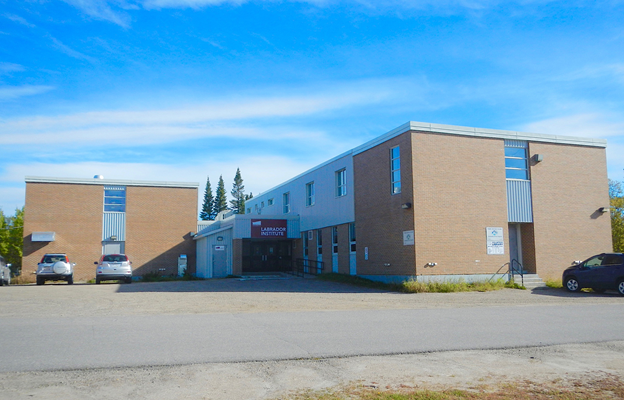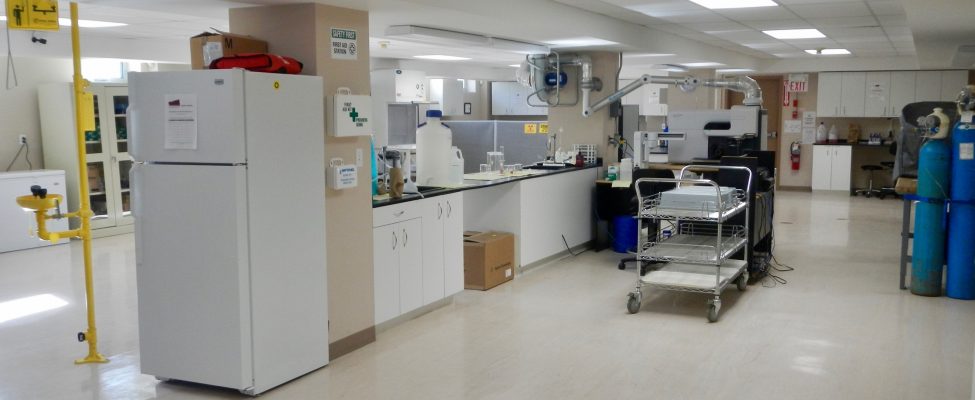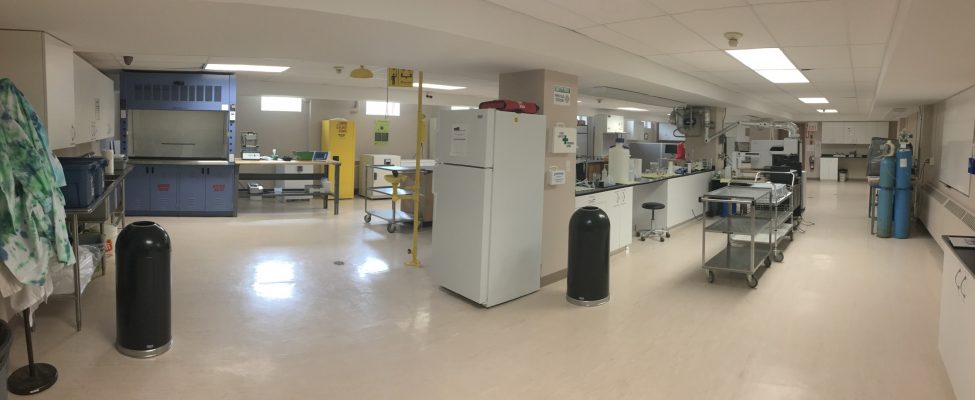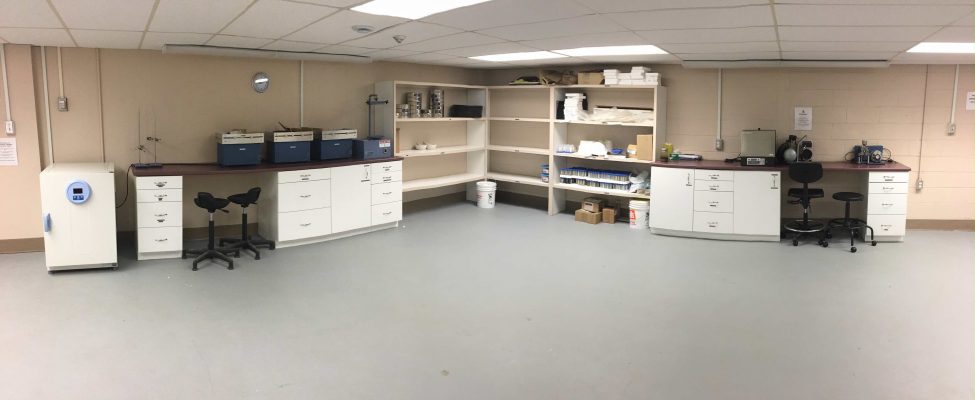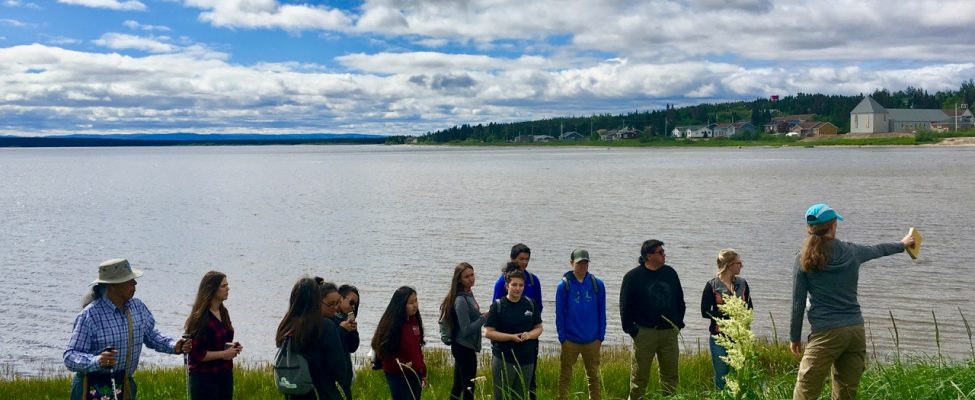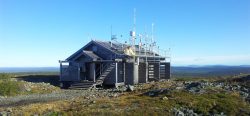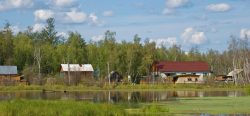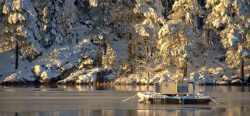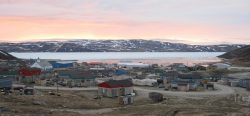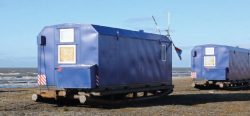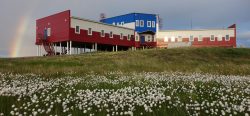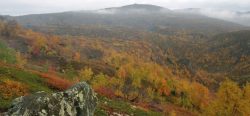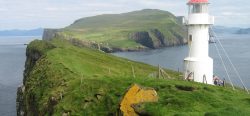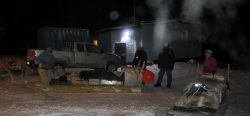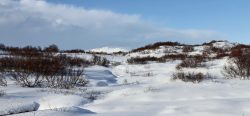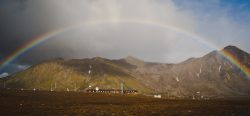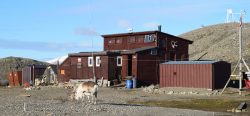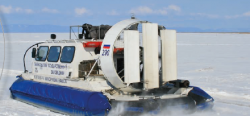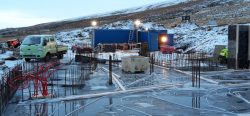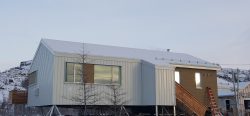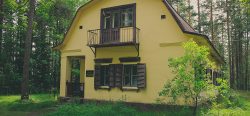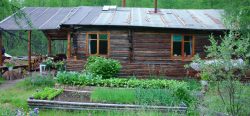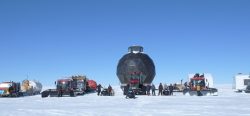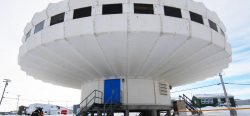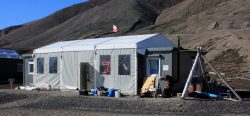Contact Details
Labrador Institute of Memorial University
North West River, Newfoundland and Labrador
A0P 1M0
Canada
- Phone: (709) 497-3630, Ext: 222
- Fax: (709) 497-3634
- Email: ashlee.cunsolo@mun.ca
- Link: https://www.mun.ca/labradorinstitute/
STATION NAME AND OWNER
Operated with a year-round permanent staff, the Labrador Institute Research Station (LIRS) is located in North West River, Labrador, Canada (Latitude: 53.527567, Longitude: -60.144211) and is co-located with the North West River community library. It is operated by the Labrador Institute of Memorial University.
LOCATION
The Labrador Institute’s main offices are located in Happy Valley-Goose Bay, with two other offices located in Labrador City and Forteau, Labrador, Canada, and a Research Station located in North West River, Labrador, Canada. North West River (NWR) is adjacent to the Labrador Inuit Settlement Area of Nunatsiavut and the asserted Innu Nation land claims. The asserted land claim settlement region of the NunatuKavut Community Council is also nearby. The town of Happy Valley-Goose Bay houses a government presence for all three IndigenousBelonging to a certain place. Indigenous people are distinct ethnic groups that have historic connections to people who lived in a territory prior to the area being colonized or coming... More groups. North West River and Sheshatshiu First Nation are also the gateway to the Akami-uapishku-Mealy Mountains National Park Reserve. The Labrador Institute Research Station is located in the TaigaBoreal forest, a nearly continuous belt of coniferous trees across North America and Eurasia. Taiga is dense forest with many fallen trees and marshy soil. The term derives form the southern Siberian Turkic-Mongol... More/Boreal Forest Region.
BIODIVERSITY AND NATURAL ENVIRONMENT
North West River generally experiences mild summers with cold winters. Winters usually begin in mid-November and last until mid-April while summers typically span from June to early September. Winter temperatures can reach below -30°C with average temperatures between -10°C to -15°C with snowfall averaging 400 cm/year. Summer temperatures can reach above 30°C with average temperatures ranging between 10°C and 20°C, and rainfall averages of 480 mm/year. The town is on a hill dividing Little Lake from the larger Lake Melville, with a small band of water (North West River) connecting the two water bodies. The area of North West River is located on a sandy plain surrounded by mountains. NWR falls within the Lake Melville Ecoregion, which is a unique ecosystem within Labrador. Immediately adjacent to the community are important waterfowl staging areas, seabird breeding colonies, and important breeding habitats for a variety of marine mammals. The nearby Mealy and Red Wine Mountains have endangered herds of woodland caribou. Moose and black bears are also frequently seen around the region. Numerous archaeological discoveries have been made in the area, the oldest of which is the Maritime Archaic site dating approximately 5000 bp.
HISTORY AND FACILITIES
The Labrador Institute Research Station was created to provide leading-edge science laboratories and a field station that supports research and science education in the remote regions of Labrador. The facility includes employee office space, scientific laboratories (a prep (wet) lab, an analytical lab and a geological sample prep lab), an archaeologyThe study of past human activity, mainly through studying artefacts and structures left behind, and by revealing other evidence of past activities. The first systematic archaeological excavations in the Arctic... More collections room, a shared research space with GIS workstations and a wide-format printer, accommodation space for four people, a full kitchen and dining area, and short-term storage space. Also included are internet, wifi, telephone and video-conferencing capabilities.
The laboratories are maintained to high health and safety standards and offer analytical and sample preparation (wet) labs. The labs have the capacity to support diverse research projects in many physical science fields. Larger pieces of laboratory equipment in the analytical lab include a microwave plasma atomic emissions spectrometer (MP-AES) coupled with a nitrogen generator, an organic elemental analyzer (CHNS analyzer), a UV-visible spectrophotometer, an FT-IR spectrometer system and a handheld X-Ray fluorescence (XRF) spectrometer. Other pieces of equipment include digital balances, a variety of microscopes, incubators, fume and laminar flow hoods, a sample freezer, a water purification system, pH and conductivity meters, a centrifuge, a digestion block, a water bath, and an air exchange system. There are 11 work stations with multiple sinks and a teaching area with a large white board. Lab space also includes internet and telephone service. The preparation (wet) labs include a Kjeldahl distillation unit, balances, sieves and a sieve shaker, a cutting mill, a muffle furnace, reciprocal shakers, a wet-tile saw, a walk-in cooler, drying ovens, an ultra-low temperature freezer, a forced-feed crusher and a thin-section machine.
GENERAL RESEARCH AND DATABASES
The Labrador Institute and the Labrador Institute Research Station are leading centres of research, outreach and education, by and for the North. Since the Labrador Institute is located on the homelands of the Innu and the Inuit, the LI has a special obligation to the IndigenousBelonging to a certain place. Indigenous people are distinct ethnic groups that have historic connections to people who lived in a territory prior to the area being colonized or coming... More peoples of the region and therefore works in partnership on research and education programming. The Labrador Institute Research Station is working to offer research and logistical support to those looking to expand, begin, or continue work for and in the Labrador region. The Labrador Institute has made substantial contributions to research through the creation of research hubs in four locations of Labrador and ongoing needs-based research. The Labrador Institute has a long history of research in Labrador in a variety of disciplines with its current major research topics including health research, marine resources and aquatic sciences, changing climates and environment, geochemistry, soil and agricultural sciences, geospatial analysis, resource development, arts and culture, archaeologyThe study of past human activity, mainly through studying artefacts and structures left behind, and by revealing other evidence of past activities. The first systematic archaeological excavations in the Arctic... More and cultural resource management.
The Labrador Institute Research Station is supporting and/or taking part in climate changeAccording to the United Nations Framework Convention on Climate Change, climate change is change in the climate of the whole Earth or a region of the Earth that is believed... More and environmental monitoring research, investigations in water use and its contaminants, interior archaeologyThe study of past human activity, mainly through studying artefacts and structures left behind, and by revealing other evidence of past activities. The first systematic archaeological excavations in the Arctic... More, archaeological mitigation, ecological research, remediation studies, soil science and northern-based agricultural investigations. The Research Station continues to grow and expand and is always open to discuss future partnerships and collaborations with interested researchers and stakeholders.
HUMAN DIMENSION
The research station is located in North West River, Central Labrador. Central Labrador has been inhabited by the Innu and Inuit for over 6000 years. The NunatuKavut community council land claim is also nearby, though this claim has not been settled, and the proposed Mealy Mountain National Park is also just across Lake Melville from LIRS.
ACCESS
The Labrador Institute Research Station is vehicle-accessible with year-round road access. The station has a snowmobile available in winter and two trucks available year-round with access to a trailer. There is an airport in Happy Valley-Goose Bay (located 30 minutes from North West River) where rental cars are available year-round. The airport includes modern facilities including helicopters and bush planes for charter; coastal trawlers are also available.
